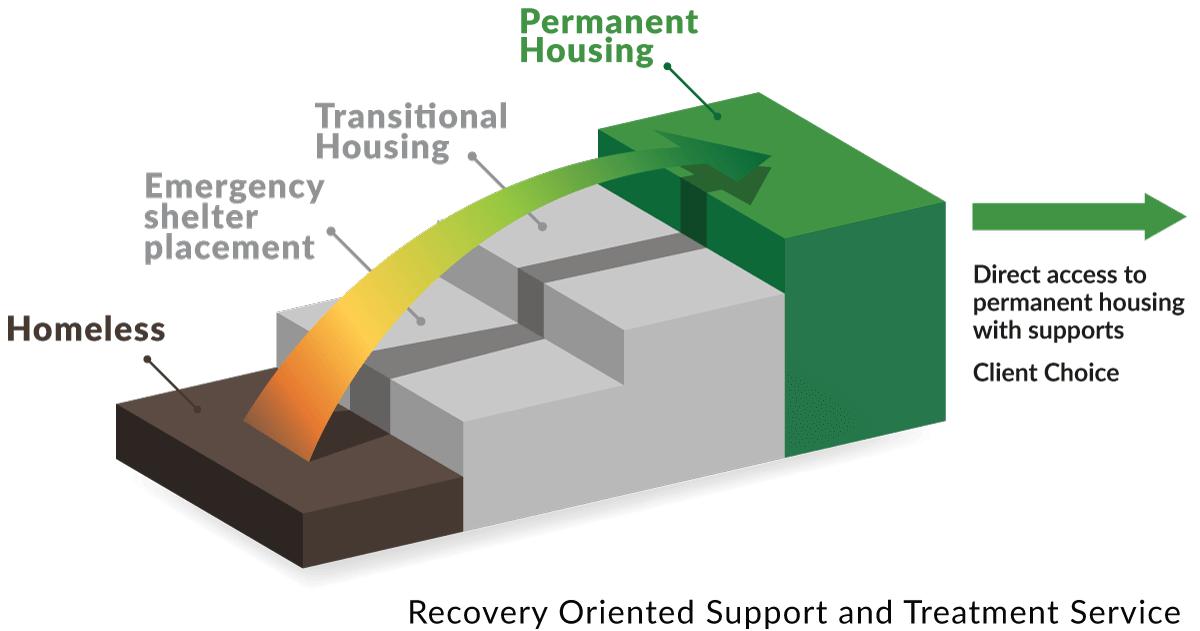Housing First
An internationally-proven, evidenced-based approach
The People’s Project was established in 2014 to address concerns about the growing number of people who were living on the streets or sleeping rough in Hamilton.
Homelessness is a complex issue no single organisation can solve alone. The Wise Group recognised that an evidence-based approach would be required to end – rather than manage – this wicked problem. The first task was a search around the world to find out who was having the most success, and what they were doing. The Housing First approach was achieving enviable results and international recognition.
How does Housing First work?
In 1992, Dr Sam Tsemberis, a clinical-community psychologist at Columbia University Medical Center’s psychiatry department had an idea – simply give chronically homeless people the keys to a home that was theirs, with no tests and no transitional housing or sobriety programmes required. All they had to do was sign a tenancy agreement and agree to visits from his team who would support them to be successful tenants and help them get any health care, therapy, counselling or other supports, if needed.
The premise was to treat homeless people as members of the community who have a basic right to a home and health care. He called this approach Housing First. Today, in studies carried out around the world, Housing First has been proven to end homelessness for between 80 to 88% of people.
The Housing First approach recognises that it is easier for people to address issues, such as mental health and substance use, once they are housed. The priority is to quickly move people into appropriate housing and then immediately provide wrap-around services to support their success. The goal of Housing First is to end homelessness.
Today, Dr Tsemberis leads Pathways Housing First, which trains organisations, conducts research projects, and influences policy related to Housing First.
Five core principles
The Housing First approach is underpinned by five principles:
1. Immediate access to housing with no readiness conditions
Housing is offered with no readiness conditions such as sobriety or proof of engagement in medical treatments. It just requires a willingness to engage with support services and be in housing. Housing First providers find people warm, safe housing that fits the needs of each person, which could be a private rental, public housing or supported living. Providers help manage the tenancy and property.
2. Consumer choice and self-determination
People have choices about the housing and support that’s right for them. For example, some may prefer their own self-contained flat or house and need regular visits with a support worker. Others may decide that a supported living arrangement works best for them. Choice may be constrained by availability and affordability.
3. Individualised and person-centred support
Support is given according to each person’s needs, for as long as needed. Housing First providers work with a range of health and social services to make sure the person gets the specialist support they need. The supports provided are individualised and person-driven.
4. Harm reduction and recovery-orientation approach
Recovery focus with holistic support to reduce harmful behaviours and make positive steps towards wellbeing.
5. Social and community integration
People are encouraged and supported to be part of their communities and connect with whānau, support networks, social activities, education and work.
The Housing First model
The diagram below demonstrates how Housing First skips the steps other traditional housing programmes have required, supporting people straight from the street or unsheltered homelessness into their a home of their own.

Reference: Dr Sam Tsemberis, Founder, Pathways to Housing
Collective impact
Social change requires a community-wide, cross sector response, which is why Housing First is often coupled with the Collective Impact approach.
In Hamilton and Tauranga, many organisations have put up their hands to support The People’s Project including:
- Hamilton and Tauranga City Councils
- New Zealand Police
- Ministry of Social Development
- Oranga Tamariki (formerly Child, Youth and Family)
- Kāinga Ora (formerly Housing New Zealand)
- Department of Corrections
- Waikato and Bay of Plenty District Health Boards
- Midlands Pinnacle Health Network
- Hamilton Central Business Association
- Downtown Tauranga
- Te Puni Kōkiri
- Waikato Tainui
- Ngati Ranginui
- Accessible Properties.
Ending – not managing – homelessness
The People’s Project is not a drop-in centre. It is a central hub where agencies work together. Our teams have experience in mental health, addiction, social work, psychology and occupational therapy. We connect people with a permanent home, and then the income, health, wellbeing, employment and other community support they may need to help them maintain their tenancy and live independently.
Visit the Ministry of Housing and Urban Development website to find out more about Housing First in Aotearoa, New Zealand.




